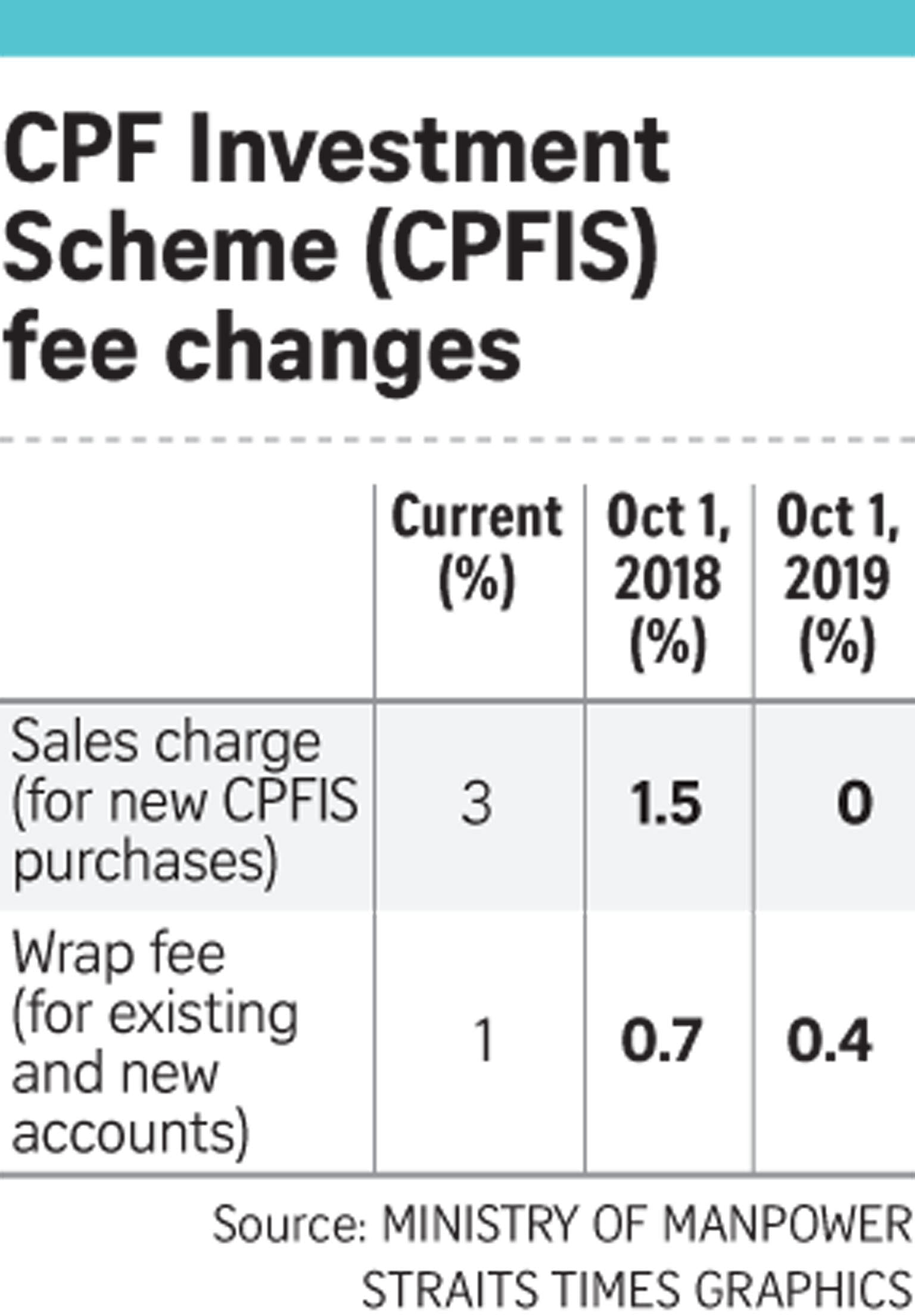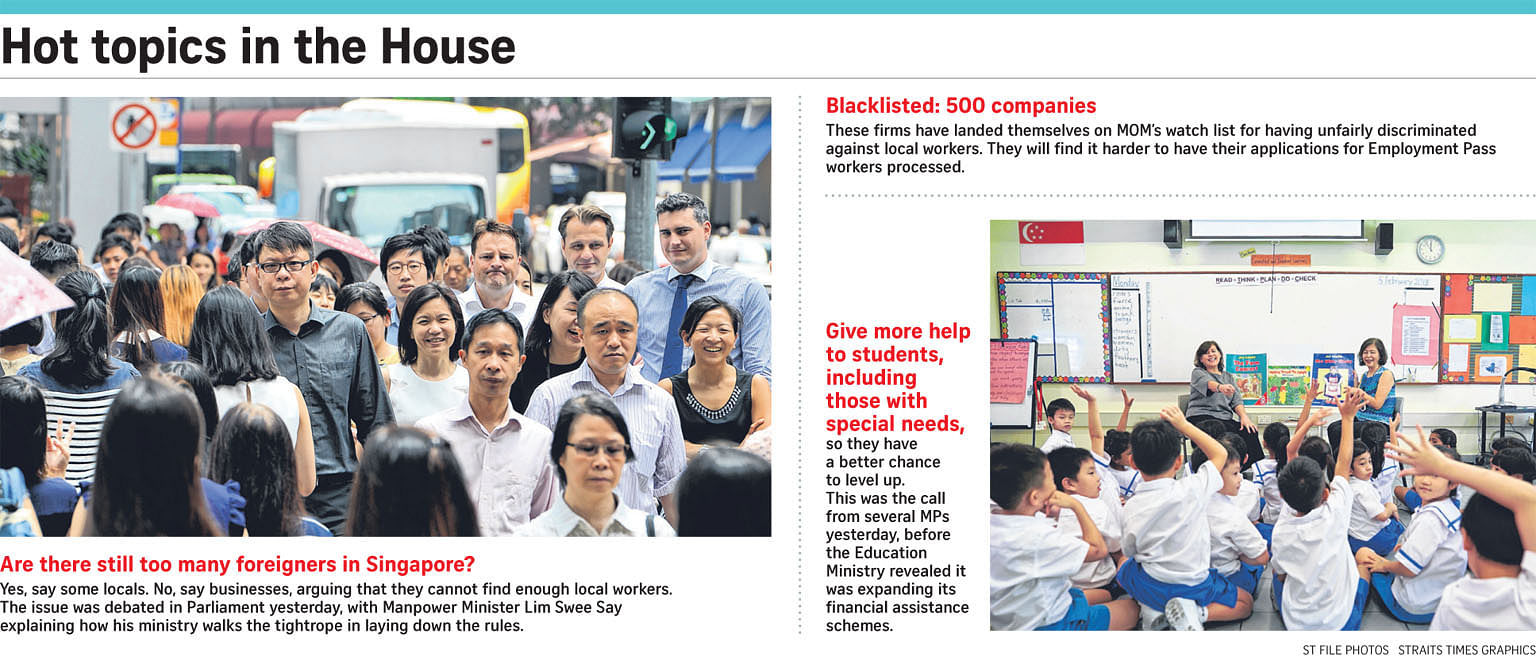Debate on ministries' budgets
Govt moves to lower costs of CPFIS investments
Experts say cuts to sales charge and wrap fee will improve returns, counter churning
Sign up now: Get ST's newsletters delivered to your inbox
The Government's move to lower the costs of investing retirement funds under the CPF Investment Scheme (CPFIS) will help improve investment returns and counter the undesirable practice of churning, said financial experts yesterday.
Churning involves buying and selling products at the expense of the investor merely to generate commissions for financial advisers.
The cuts to the sales charge and wrap fee under the CPFIS will be done in two phases, the first starting on Oct 1.
Sales charges for new purchases of CPFIS products, such as investment-linked insurance policies (ILPs) and unit trusts, will fall from 3 per cent to 1.5 per cent. This charge will be removed entirely from Oct 1 next year.
A Manpower Ministry spokesman said the sales charge incentivises financial advisers to sell products to earn more commission. CPFIS investors are already able to buy unit trusts via online platforms without incurring any sales charge.
Mr David Gerald, president of the Securities Investors Association (Singapore) or Sias, welcomes the move as fees are a "drag on investment return".
Mr Sam Phoen, co-founder of Wateram Capital, said: "The eventual removal of the sales charge ensures every dollar invested goes straight into the fund and earns a return."
The Life Insurance Association Singapore added that the fee cut and its eventual removal may result in a dip in the volume of transactions for CPFIS-included policies as ILPs in the scheme generate up to 3 per cent sales charge for financial firms.
"Individual life insurers can be expected to assess ... their continued participation in the CPFIS," it said.
"For instance, life insurers could market CPFIS-included products online without financial advice to cater to knowledgeable self-directed consumers."
Financial advisers can charge a wrap fee of up to 1 per cent of assets under management a year for CPFIS members with wrap accounts. This wrap fee covers both advisory services and the costs to maintain the wrap account.
The cap on annual wrap fees will be lowered to 0.7 per cent on Oct 1, and to 0.4 per cent on Oct 1 next year.
The Manpower Ministry said the 0.4 per cent cap is similar to fees charged by online investment platforms in the cash market.
Providend chief executive Christopher Tan said that while removing the sales charge will help counter churning, the side effect is that advisers may not earn enough when giving investment advice.
That could induce them to sell insurance products like endowment plans instead of low-cost unit trusts under the CPFIS, which may not be in the best interests of consumers.

He suggests capping the sales charge to say 1 per cent instead of removing it completely, and lowering the total expense ratio (TER) instead of lowering the wrap fee.
The TER comprises management fees and additional expenses, such as trading, legal and auditor fees as well as other operational costs. The more actively managed the fund, the higher the TER.
"By lowering wrap fees and not TER, you penalise good advisers who recommend low TER funds, which are better for the consumers, but reward advisers who recommend high TER unit trusts, which are bad for consumers," said Mr Tan.
He suggests that the TER of funds under the CPFIS be capped at a "more reasonable" amount like below 1 per cent a year. The current cap of 1.75 per cent is "too high and eats into returns", he added.
A new self-awareness questionnaire will also be introduced as part of the process of opening a CPFIS account from Oct 1.



